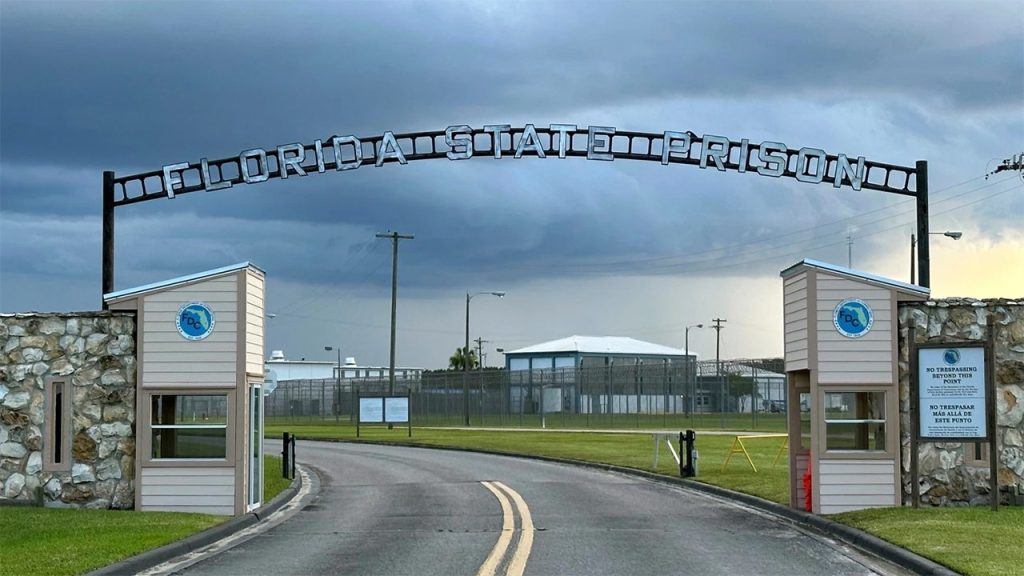Florida Sets Record with 15th Execution Under Governor DeSantis
In a solemn proceeding at Florida State Prison near Starke, the state carried out its 15th execution of the year on Tuesday, establishing a new annual record under Governor Ron DeSantis’s administration. Norman Mearle Grim Jr., a 65-year-old man convicted of the brutal rape and murder of his neighbor Cynthia Campbell in 1998, was pronounced dead at 6:14 p.m. after receiving a three-drug lethal injection. When offered the opportunity to make a final statement, Grim simply replied, “No sir.” The governor’s spokesperson, Alex Lanfranconi, reported that the execution proceeded without complications, marking another chapter in Florida’s increasingly active use of capital punishment.
The crime that led to Grim’s execution was particularly heinous, leaving a community shaken more than two decades ago. Campbell was reported missing in July 1998, and her badly battered body was later discovered by a fisherman in the waters near the Pensacola Bay Bridge. The prosecution presented evidence showing Campbell had suffered multiple blunt-force injuries to her face and head, consistent with hammer strikes, along with eleven stab wounds to her chest—seven of which penetrated her heart. The case against Grim was solidified by physical evidence, including DNA that definitively linked him to Campbell’s murder. The brutality of the crime ultimately led to his conviction on charges of sexual battery and first-degree murder, with the court imposing the death penalty.
Earlier this month, Grim made the unusual decision to waive any further appeals to his conviction and death sentence, despite having opportunities to petition both the Florida Supreme Court and the U.S. Supreme Court for relief. This choice effectively expedited his execution date. On his final day, Grim woke at 6 a.m. and chose fried pork chops, mashed potatoes, and a chocolate milkshake for his last meal. According to the Department of Corrections, he declined to meet with a spiritual advisor and received no visitors in his final hours—a solitary end to a life marked by violence.
Florida’s accelerated pace of executions this year stands in stark contrast to other states and to its own historical practice. Since the U.S. Supreme Court reinstated the death penalty in 1976, Florida had never executed more than eight individuals in a single year, a record set in 2014. This year’s fifteen executions have put Florida significantly ahead of other states that regularly employ capital punishment, with Texas and Alabama following at five executions each. Florida’s lethal injection protocol involves a three-drug combination: a sedative to render the condemned unconscious, a paralytic agent that stops breathing, and finally a drug that stops the heart—a procedure the state maintains is humane despite ongoing national debates about execution methods.
The state shows no signs of slowing its pace, with two more executions already scheduled for November. Bryan Fredrick Jennings, 66, faces execution on November 13 for a particularly disturbing crime dating back to 1979. Jennings was convicted of entering a central Florida home through a window, abducting a 6-year-old girl, then raping and killing her—a crime that has kept him on death row for over four decades. Just one week later, on November 20, Richard Barry Randolph, 63, is scheduled to be executed for the 1988 rape and fatal beating of his former manager at a Florida convenience store. If both executions proceed as planned, Florida will reach an unprecedented seventeen executions in a single year.
This dramatic increase in executions comes amid a national conversation about capital punishment, with some states moving away from the practice while others, like Florida, double down. Supporters of Governor DeSantis’s approach cite the need for justice for victims and their families, particularly in cases of heinous crimes like those committed by Grim, Jennings, and Randolph. Critics, however, point to concerns about the irreversibility of execution, the possibility of executing innocent individuals, and questions about whether the death penalty serves as an effective deterrent to violent crime. The contrast is particularly striking as several other states have instituted moratoriums on executions or abolished the practice entirely in recent years.
As Florida continues to break its own records for capital punishment, the state finds itself at the center of the ongoing national debate about the ethics and efficacy of the death penalty. For families of victims like Cynthia Campbell, executions may represent a form of closure after years or even decades of waiting for justice. For others, the accelerating pace raises questions about the rush to execute and whether adequate safeguards remain in place. What is clear is that under Governor DeSantis, Florida has firmly established itself as the nation’s most active death penalty state, with fifteen lives ended by state action this year alone—each representing a complex story of crime, punishment, and the ultimate exercise of state power.


